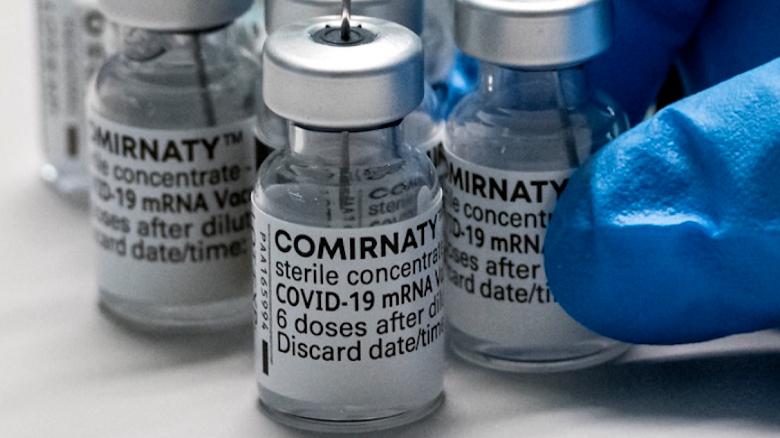A year and a half ago, the WHO declared the Covid-19 outbreak a pandemic, and the US declared a national emergency.
However, in recent weeks and months, many Americans have been focused on other issues, such as the US withdrawal from Afghanistan, Hurricane Ida, and wildfires in the West.
According to a CNN data analysis, the new Delta variant has brought cases, hospitalizations, and deaths back to levels seen last winter. Despite this, the virus’s fight is looking up now that more than half of the US population has been vaccinated.
According to Justin Lessler, an epidemiology professor at UNC Chapel Hill, the next few months “will be bumpy,” but things should start to improve in three to four months.
“The virus will keep evolving, but as we gain immunity, each wave will be less severe,” Lessler said. It may take a long time and a few bumps, but I am convinced that the virus will go from a major scourge to a minor annoyance.
Lessler says the process will take years, not months as some initially thought.
Here’s where we stand now with Covid-19:

The doctor says the virus is now a regional issue.
According to Johns Hopkins University data, there are currently 39 million Covid-19 cases and 600,000 deaths in the US.
Florida, Texas, California, Georgia, and North Carolina accounted for over 40% of cases last week. Florida and Texas alone accounted for a third of recent deaths.
“We’ve turned the virus into a regional issue,” said Dr. Amesh A. Adalja of the Johns Hopkins Center for Health Security.
Adalja says Covid will survive the pandemic, but won’t be able to “throw a hospital into crisis.” He added that what is happening now in America is “by choice, not by nature.”
“We’re on that path — in some states, but not in the South,” he said. “It’s bleak in those states, but it’s rosy elsewhere.”
Some parts of the US are improving, but more work is needed. Eleven states had fewer cases in the past week, including Mississippi (down 10%), Arkansas (down 10%), California (down 9%), and Texas (down 9%). (down 3 percent).
Vaccination reduces cases.
On Tuesday, CNN reported that 370.2 million doses of the Covid-19 vaccine had been administered nationwide.
Every day, 899,462 doses are given, and 426,311 people receive their first dose. On August 13, the CDC approved booster doses for certain immunocompromised people, and around 996,000 people have received them.
“We already have community immunity,” Lessler said. “It’s a continuum, not an absolute. We always get there, whether it’s the virus or the vaccine. But it’s still community immunity that will bring this under control. “
Despite the fact that half of the US population is fully vaccinated, the country is returning to winter levels of cases, deaths, and hospitalizations. Cases in the US are averaging over 159,000 per day, the highest since January.
The country is dying at a rate not seen since March (1,329 per day). The US seven-day average of 100,057 hospitalizations is the highest since January.
“Many people are still vulnerable. That’s why it’s been so bad, “he said. “Yes, we have more immunity than we used to, but there are still large pockets of vulnerable people who cluster together. They talk. “
He also blames the rise in cases on lax mitigation efforts throughout the spring and summer. The CDC’s changing mask mandates throughout the summer may have also played a role.
In May, the CDC said most fully vaccinated people could go without masks indoors. With the emergence of the Delta variant in July, the CDC urged vaccinated people in certain areas to reapply masks in public indoor areas.
“If you are fully vaccinated, wear a mask indoors in public if you are in an area of substantial or high transmission,” the center advises.

Children are now infected more.
More kids are hospitalized with Covid-19 now than ever before this year.
The CDC reports that between August 20 and 26, 330 children were hospitalized with Covid-19. That Delta can affect any age group is shown by hospitalizations.
“It’s so easily spread,” said Dr. Mark Kline of Children’s Hospital New Orleans. “Half of the children admitted were under 2,” he said on August 9.
But the issue of masks in schools is still being debated, turning it from a health issue to a political one. In recent months, heated debates over masking in schools have turned violent at school board meetings across the country.
In July, 12 of the 20 largest US school districts required students to wear masks. The other eight are in Florida (Miami-Dade, Duval, Broward, Hillsborough, Orange, Palm Beach), where the governors have banned school mask requirements.
The AAP advises all students over 2 to wear masks in school.
Unvaccinated children and adults are more susceptible to Covid infection. And they can unwittingly help create new variants, says Dr. Paul Offit of Children’s Hospital of Philadelphia’s Vaccine Education Center.
“If we continue to let this virus spread, we will continue to create variants,” Offit said.

